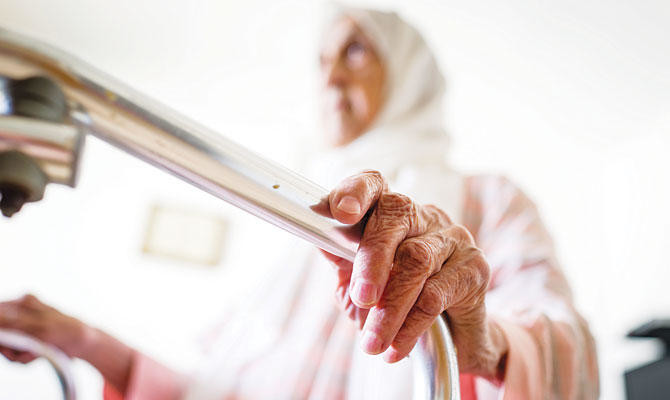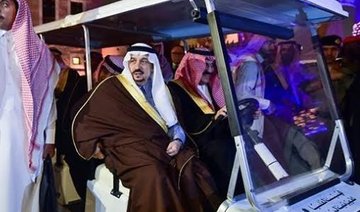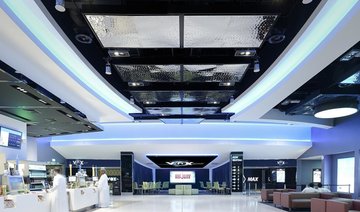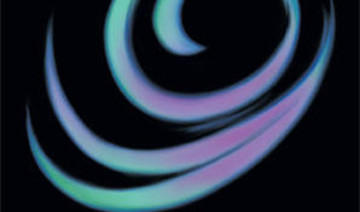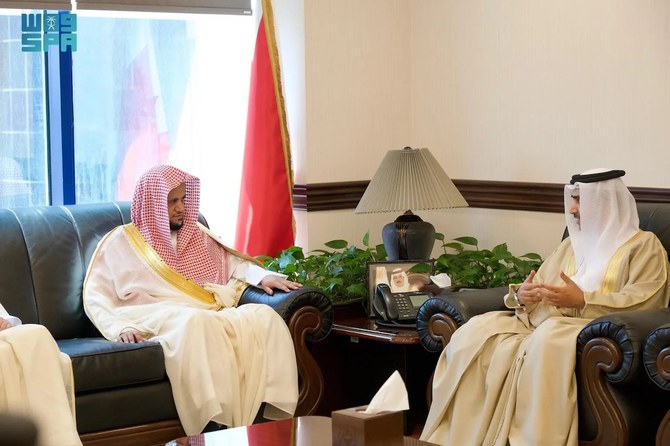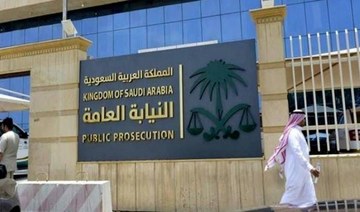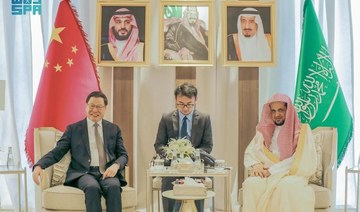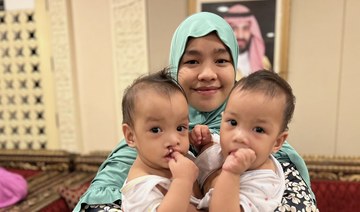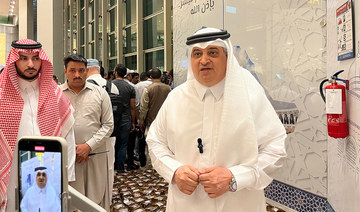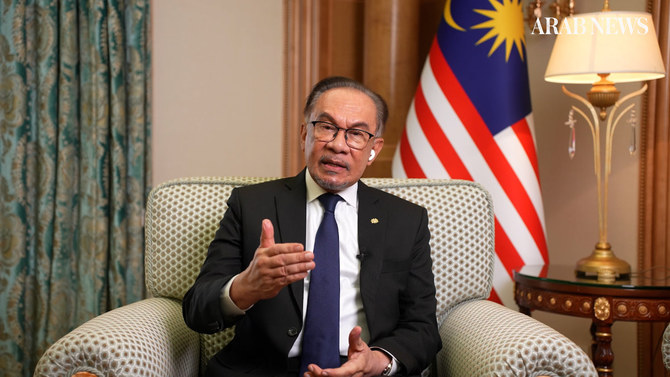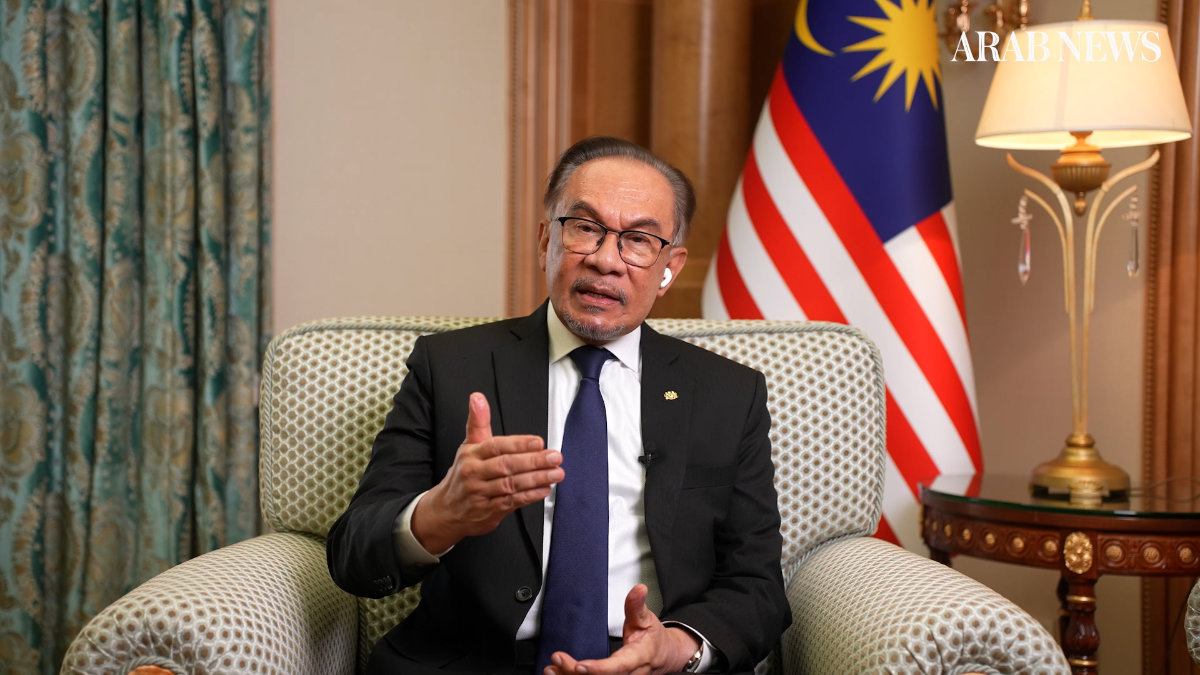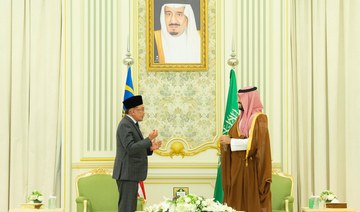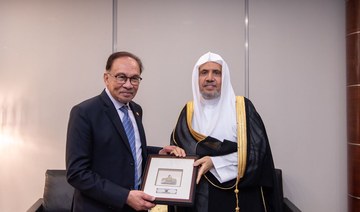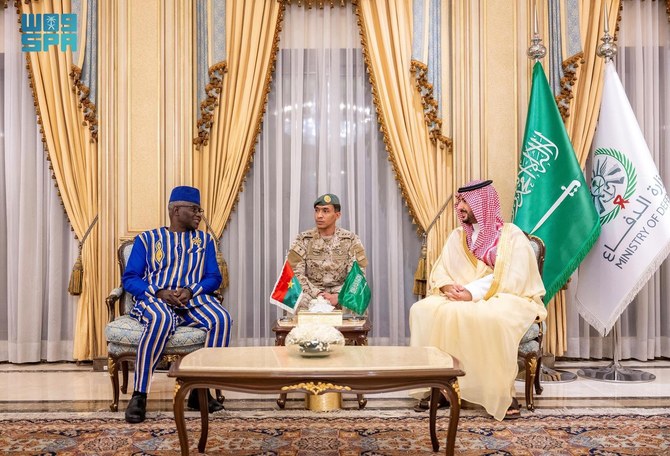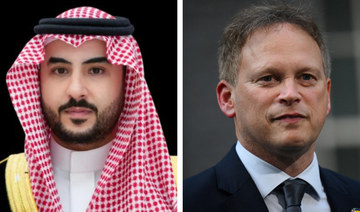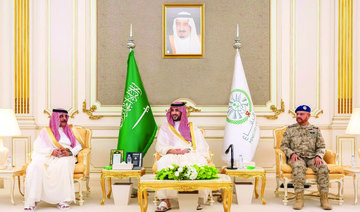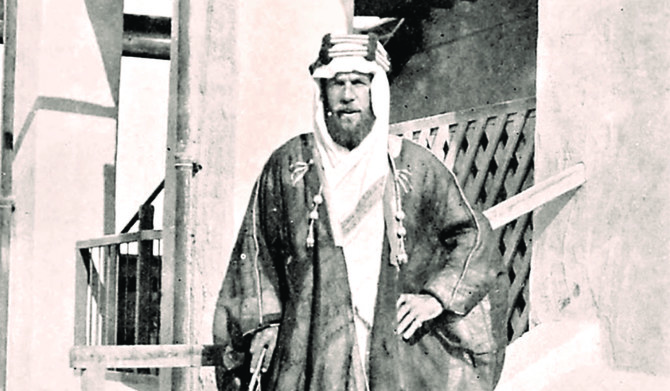LONDON: It is the modern epidemic claiming a new victim every three seconds. Fifty million people in the world have the disease now, and that number is forecast to double over the next 20 years, and every 20 years thereafter.
The disease is dementia and it respects no one, disregarding wealth, education and social status. And there is no known cure. But Saudi Arabia is in a unique position to tackle the illness.
In much of the developed world, nearly 18 percent of the population is aged 65 and over. Dementia, in all its variations, is already well-entrenched.
But in Saudi Arabia, over-65s make up only 3.3 percent of the population, meaning the Kingdom has time to plan for an issue that is only going to grow.
This year, the cost of dementia treatment and care worldwide tipped from the multibillion into the trillion-dollar bracket. If global dementia were a country, it would be the world’s 18th-largest economy.
The emotional cost to the families of sufferers, not to mention the sufferers themselves, is incalculable.
Yet in the Middle East, the disease remains largely unacknowledged, leading to little or no care provision and poor documentation.
“People don’t see it as a disease. They think it is simply part of getting old. Awareness is low and stigma is high,” said Paola Barbarino, CEO of Alzheimer’s Disease International (ADI), a federation of 90 associations. Among them is the Saudi Alzheimer’s Disease Association, which joined in 2017.
The situation is no better in neighboring Gulf countries, she said, adding that the UAE has “very little awareness.”
This conclusion is backed by the findings of Dr. Mohammed El-Noaman, a senior geriatrician with the Dubai Health Authority. In his research, he cited “uncertainty” over how to distinguish normal aging from dementia.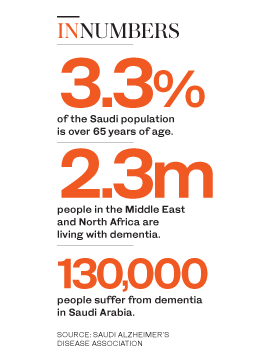
El-Noaman found that 16.2 percent of Emiratis had symptoms indicating Alzheimer’s. Yet only 3 percent appear in medical records as Alzheimer’s cases.
The fact that dementia remains incurable has bred “prejudice” against spending time or money on diagnosis, he said.
Kuwait has no organization at all to address the illness. More than 2.3 million people in the Middle East and North Africa are living with dementia, but with unreliable data, all figures are estimates.
A study in 2015 found that in the region, only Egypt and Turkey had made concerted efforts to establish the prevalence of the disease, said Barbaroni.
This may be changing. A study last year by the Saudi Alzheimer’s Disease Association found that 130,000 people in the Kingdom were suffering from the condition.
ADI offers an action plan as a blueprint for countries to record, monitor and help those with dementia.
But “there is a real problem with the Middle East. All that area is practically devoid of any action,” said Barbarino.
“Documentation of the prevalence of dementia is very poor. We suspect the numbers are widely underestimated.”
Saudi Arabia was one of five countries that were studied for a Readiness Index published in July this year by ADI and the Global Coalition on Aging.
The index rated the countries — the others were Argentina, Brazil, India and China — in several categories relating to dementia, including education, care standards and funding.
Although the Kingdom scored well on funding (8.33 out of 10) and care standards (7.78), it scored only 2.86 for “strategy and commitment,” ending up with an overall score of 5.9 out of 10.
Saudi Arabia also scored poorly in the crucial category of early detection and diagnosis, achieving 6.46 out of 10.
One reason for this is that despite having some of the best hospitals in the Middle East, there is no centralized databank of patient information, including diagnoses. Each hospital operates as an independent entity with no system for sharing information.
The Readiness Index says: “Low awareness of dementia among health-care providers and the general public delays detection, diagnosis and treatment … Due to distrust, lack of information and under-diagnosis, people with dementia are not effectively recruited into clinical trials.”
Saudi Arabia is severely lacking in specialists in geriatric medicine, and there is too little collaboration between geriatrics, psychiatry and neurology — three key disciplines in diagnosing and treating dementia.
“One of the biggest problems is that people have to go to a general practitioner, who isn’t a specialist and hasn’t been trained in dementia,” said Barbarino.
The shortfall is storing up trouble for the future, according to Dr. Mohammed Basheikh, associate professor and geriatrician at King Abdulaziz University and one of the few specializing in treatment of the elderly.
“There are only 18 geriatric consultants in Saudi Arabia today,” he said. “We’re projected to reach 6 million elderly people in 2030. There is no way that 18 specialists will be able to provide care for all of them.” 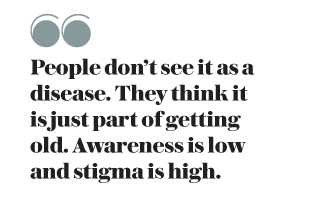
However, the Readiness Index deems Saudi Arabia “exceptional” in state provision of care for sufferers and support for their families.
The Health Ministry, via the Saudi Alzheimer’s Disease Association, pays for live-in carers and weekly visits by doctors, nurses, psychologists and therapists, and also covers transport costs and medication.
The association holds workshops and runs online training courses for carers and year-round awareness campaigns on TV, radio and social media.
“We believe social awareness is a base, if not the base, to raising the level of care of patients in the future,” an association spokesman told Arab News. It has recruited more than 4,800 volunteers around the country since 2009.
Patients with no family can live in one of the association’s residential facilities. Admirable as all of this is, the association currently has only 1,400-1,500 people in its care.
The rest must fend for themselves, relying on family (if they have any) or hiring carers (if they can afford it) who are likely to have no training specific to dementia or even to general care of the elderly.
The private sector would be the obvious candidate to build much-needed residential care facilities.
But Saudi regulations require all such facilities to be equipped like a hospital, with a fully functioning emergency department, radiology department and intensive care unit — a huge outlay that is unlikely to encourage private developers to build extended care homes for the elderly.
When it comes to dementia, the West is playing a desperate game of catch-up.
“The Gulf nations, on the other hand, are in a position to learn from earlier mistakes, and they have both the luxury of a little time and the financial capability to plan for this and get it right,” said Barbarino.


